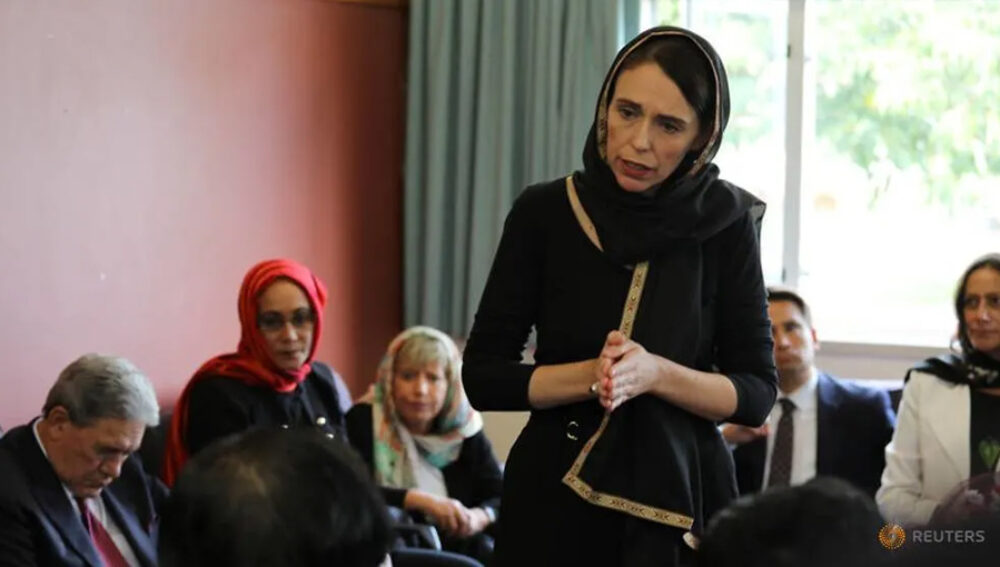“They are us.” The words that New Zealand’s Prime Minister Jacinda Ardern chose to express her condolences to the victims of last Friday’s Christchurch massacre are quietly powerful.
The message she sent to the rest of the world—that intolerance, Islamophobia and the violence of radical extremism have no place in New Zealand—has united the nation in solidarity.
The leadership she has shown to the grieving communities of New Zealand is striking in its compassion. The example she has offered to leaders across the globe – especially now, in an era of strongman rule – is refreshingly human, profoundly vulnerable, and, for now, free from the spite of politics. Her swift commitment to enact stronger gun control laws within the nation adds a strong measure of substance.
The global impact of the violent shooting of Muslims at Christchurch’s Al Noor and Linwood Mosques is inescapable. It holds particular resonance across the Asia-Pacific, a region that is home to significant Muslim communities and nations.
Among the dead and wounded are citizens of Indonesia, Malaysia, Pakistan, Bangladesh, and Turkey. Some of the victims were recently arrived refugees to New Zealand, others long time immigrants; some were of New Zealand origin, others there temporarily for travel or study. Each of the victims leaves behind family, friends and colleagues, their own stories and aspirations. They were guilty of nothing more than engaging in peaceful Friday prayer with family and friends. They are us.
Leaders from across the region have spoken out in condolence to the victims, and in condemnation of the Islamophobic sentiments that appear to have fueled the massacre. They have taken some measure of reassurance from Ardern’s response.
Australia has found itself at the centre of the Christchurch crisis. It was shock enough to learn that the gunman, now facing trial for the murder of some 50 people, is Australian. Investigations quickly revealed the source of his inspiration: a seething subculture of right-wing extremism with international connections. The fact that it persists in pockets across our nation is deeply worrying.
Australian leaders too have been quick to respond. Prime Minister Morrison expressed outrage and condemnation of the terrorist attack, acknowledging that “white supremacy and separatism in Australia is not new. It’s been around for well over a century”. Opposition leader Bill Shorten noted of the gunman: “this is not an Australian who represents Australia”. Indeed, he observed, Australians felt “impotent, outraged, disgusted, ashamed of what happened in Christchurch”.
Yet as many have already suggested, the response is too little too late, lacking in credibility. Political point-scoring in this country has long relied on elements of division and fear.
This became clear when Queensland Senator Fraser Anning linked the attack to increasing fears over increasing Muslim immigration. Anning’s statement was perhaps unsurprising given his past political affiliations, including to the marginal One Nation party. Pauline Hansen, the vocal leader of One Nation, can herself point to a long legacy of divisive racist rhetoric and spectacle.
Complications emerged for Anning after he was publicly ‘egged’ by a teenage boy, against whom he then lashed out in retaliation. A messy affair. Yet, regardless of where you stand on the matter, what’s especially disappointing is how it captured media space and commentary – revealing the gimmickry of Australian politics, and distracting audiences from the real issues at play.
And for Australia, there is much at stake. The 2017 Foreign Policy White Paper recognises Australia as one of the most successful multicultural nations in the world. With close to half of today’s Australians reporting at least one parent as being born overseas, we are a diverse nation, connected more than ever through cultural, language, and diasporic bonds to our region.
Yet there are some in our society who are clearly uncomfortable with the values underpinning our diverse society. This is why leadership matters.
How our leaders respond to the Christchurch attack, promote values of tolerance and respect, and manage divisive elements within the community, not only reflects our view of ourselves, but also plays into our regional reputation and diplomatic influence.
Anning’s statement has attracted condemnation the world over – Australia’s Ambassador in Indonesia, our most significant neighbour and the world’s largest Muslim-majority nation, has already been called to account for it. Indonesia’s foreign ministry has been clear in its criticism, noting that the remarks show a lack of understanding and a “very short-sighted” view of Islam. This is an assessment likely to hold traction across the Asia-Pacific.
Speaking at the Griffith Asia Institute in 2017, shadow foreign minister Penny Wong reminded us that “Australia’s foreign policy interests and the values we project in Asia matter now more than ever”. It is a fitting reflection for today.
Our political leaders must do more to reassure their counterparts across the region that Australia is in fact the tolerant and diverse nation it claims to be. We need to make it clear that the people who come here to live, work, study, or visit, regardless of where they are from, will be safe, welcomed, and treated with respect.
Global affairs commentator Stan Grant warns: “We are all potentially prey to the war of our time: the war of identity”, which feeds on vengeance, resentment, and a fear of the ‘other’. Likewise, Waleed Aly points to an underlying culture and politics of fear which has, over time, enabled violence.
Against this backdrop it is all the more remarkable that Prime Minister Ardern is focused not on the divisions that separate communities, feed mistrust and drive conflict, but instead on what’s common and shared: on what brings people together. It’s a simple and powerful message. We can only hope that other leaders – including those within Australia — might follow her lead.
Professor Caitlin Byrne is Director of the Griffith Asia Institute.








